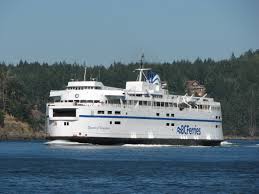
Introduction
BC Ferries plays a vital role in the transportation infrastructure of British Columbia, serving as a crucial link between the coastal communities and the mainland. With over 25 routes and 35 vessels, BC Ferries is not only a popular choice for residents but also essential for tourism, commerce, and emergency services. Understanding its significance is key to appreciating how it connects the diverse regions of this Canadian province.
Current Operations and Developments
In 2023, BC Ferries has faced challenges such as staffing shortages and rising operational costs, which have necessitated adjustments in service schedules and fares. Despite these hurdles, the company has reported a steady increase in ridership, particularly during peak travel seasons. In the last summer, BC Ferries saw a record number of passengers, reflecting the growing importance of ferry travel in the province, especially as more people opt for staycations and explore local destinations.
Notably, BC Ferries has also begun implementing modern technologies to improve the customer experience. Initiatives such as real-time tracking apps and online booking systems have helped streamline operations, offering passengers enhanced convenience. Furthermore, sustainability efforts are underway, including investments in hybrid and electric ferries aimed at reducing the environmental impact of ferry operations.
Impacts on Local Economy and Tourism
The role of BC Ferries extends far beyond just transportation; it profoundly impacts the local economy. For island communities, the ferries are a lifeline, facilitating the movement of goods and services to and from the mainland. This connectivity promotes local businesses, encourages tourism, and enables residents to commute for work or education. In 2022, it was estimated that BC Ferries contributed over $1.5 billion to the provincial economy through easy access to waterfront businesses, parks, and recreational sites.
Conclusion
As BC Ferries continues to adapt to the challenges of modern travel and environmental concerns, its significance to the residents and economy of British Columbia remains clear. The ongoing development of infrastructure and technology, alongside strong community ties, ensures that BC Ferries will remain a key player in the region’s travel landscape. Looking ahead, investments in more sustainable practices and systems will be crucial not only for the operational efficiency of BC Ferries but also for the preservation of the natural beauty that attracts millions of visitors each year. Ultimately, BC Ferries embodies the spirit of connection and accessibility that is fundamental to the coastal way of life in British Columbia.



